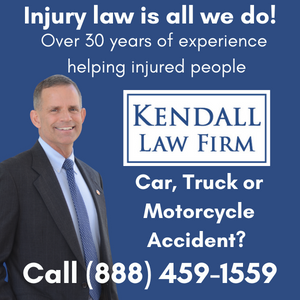Common causes of boating accidents in Harrisonburg, Virginia
Boating accidents in Harrisonburg, Virginia, often result from a combination of human error and environmental factors. One of the most common causes is operator inexperience or negligence. Many boat operators are not adequately trained or familiar with safe boating practices, leading to mistakes such as improper navigation, speeding, or failing to adhere to local boating laws. Alcohol consumption is also a frequent contributor, as operating a boat under the influence significantly impairs judgment and reaction time, increasing the likelihood of collisions and other dangerous situations.
Environmental factors play a significant role in boating accidents as well. Weather conditions such as sudden storms, high winds, or fog can reduce visibility and make it harder to control the vessel, leading to accidents. Additionally, crowded waterways, especially during peak boating seasons, increase the risk of collisions. Mechanical failure, such as engine breakdowns or faulty equipment, is another common cause, often linked to poor maintenance. Together, these factors make boating accidents a serious concern in the region, especially given the area's popular waterways like the Shenandoah River.
In Virginia, boating accidents are a significant safety concern, with statistics from the Virginia Department of Wildlife Resources highlighting key trends. In 2022, there were 89 reported boating accidents in the state, resulting in 21 fatalities and 52 injuries. Alcohol use remains a leading cause of these incidents, contributing to nearly half of the fatal accidents. Collisions with other vessels or stationary objects, capsizing, and falls overboard are the most frequent types of accidents. Additionally, many of these accidents involve operators with little formal boating safety education, with the department reporting that around 70% of fatal accidents involve boaters who have not completed a safety course. These statistics emphasize the importance of operator education and safe boating practices to reduce accidents on Virginia’s waterways.
Some terms and concepts related to boating accidents include:
- Negligence – Failure to exercise reasonable care in operating a boat, leading to an accident or injury.
- Liability – Legal responsibility for damages or injuries caused by a boating accident.
- Personal Injury – Physical harm or injury sustained by a person involved in a boating accident.
- Wrongful Death – A legal claim made when someone’s death is caused by the negligence or misconduct of another in a boating accident.
- Comparative Fault – A legal principle that assigns a percentage of fault to each party involved in a boating accident, affecting the damages awarded.
- Damages – Compensation sought or awarded in a lawsuit for injuries, property damage, or losses resulting from a boating accident.
- Maritime Law – A specialized area of law governing activities and incidents that occur on navigable waters, including boating accidents.
- Gross Negligence – A severe form of negligence indicating reckless disregard for safety, often leading to punitive damages in boating accident cases.
- Insurance Claim – A request made to an insurance company for compensation following a boating accident.
- Statute of Limitations – The time period within which a lawsuit must be filed after a boating accident occurs.
Some common injuries people suffer in boating accidents include:
- Drowning – The most severe and often fatal injury, especially when victims are not wearing life jackets.
- Brain and Head Injuries – Including concussions, skull fractures, and traumatic brain injuries (TBI) due to impact with the boat or objects in the water.
- Fractures – Broken bones, commonly in the arms, legs, or ribs, caused by collisions or falls.
- Lacerations – Deep cuts or wounds, often resulting from contact with sharp objects or the boat’s propeller.
- Spinal Cord Injuries – Damage to the spine from sudden impact, potentially leading to paralysis.
- Hypothermia – A dangerous drop in body temperature after prolonged exposure to cold water.
- Burns – Caused by boat fires, fuel explosions, or contact with hot engine parts.
- Whiplash – Neck and back injuries resulting from the sudden jerking motion during a collision or rapid stop.
- Soft Tissue Injuries – Sprains, strains, and bruises affecting muscles, ligaments, and tendons.
- Internal Injuries – Damage to internal organs due to blunt force trauma from falls or crashes.
How do you deal with an insurance claim after a Harrisonburg boating accident?
Regardless of how severe an accident is, almost everyone involved has to deal with insurance companies and claims. For crashes involving more serious injuries, or when a fatal crash occurs, a Harrisonburg personal injury attorney is needed to manage the insurance claim. Go here to learn more about how Harrisonburg boat accident lawyers help injured victims.
Most recent accident reports
In the early morning hours of Friday, December 20, 2024, a tragic single-vehicle accident in Harrisonburg claimed the life of 40-year-old Jeremy Grear and left a
- Page 1
- next ›


